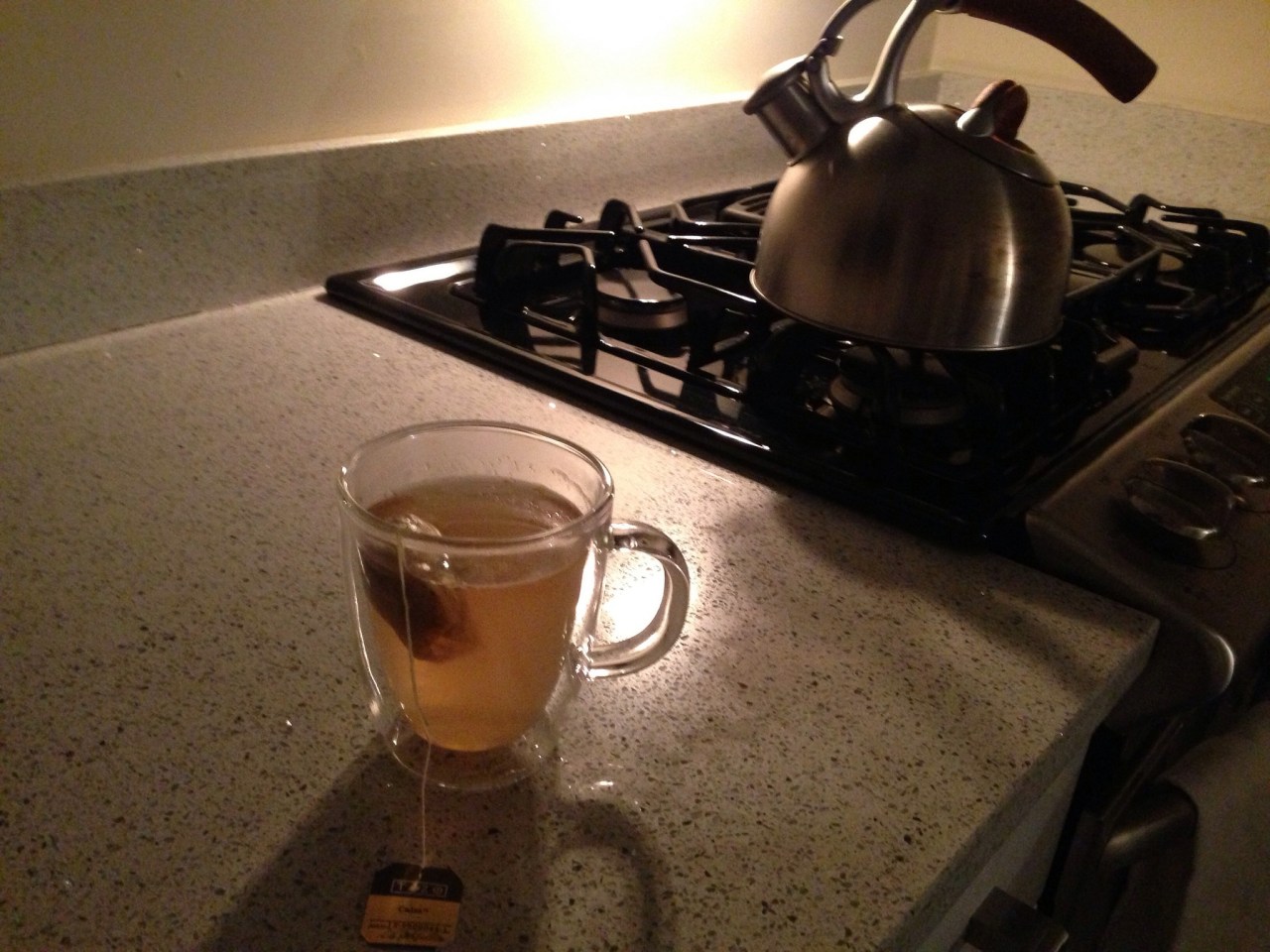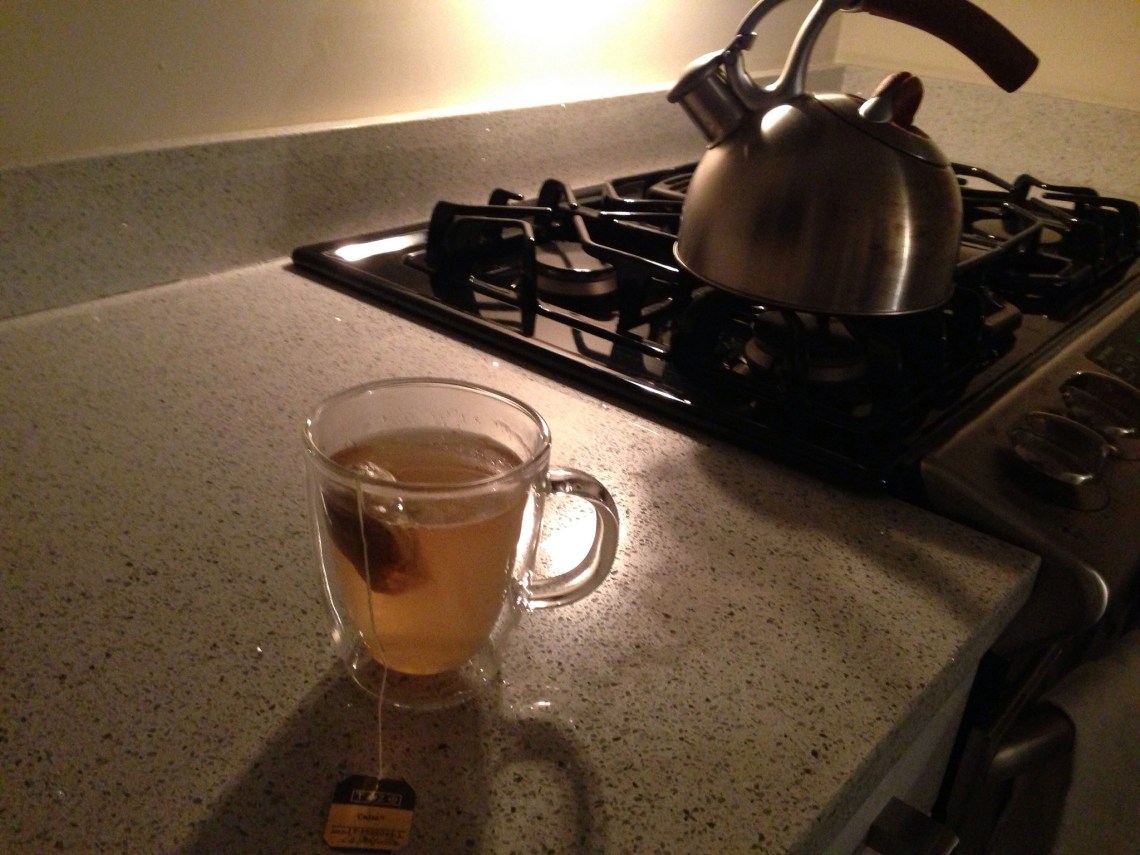
13 Things People Don’t Realize You’re Doing Because Of Your Difficult Relationship With Food

1. You can overdo it with tea and coffee because you know that they will stop you from feeling hungry.
All of a sudden you’ll realize you’ve been drinking coffee for five and half hours instead of pausing to actually eat something. And you’ll justify in your head that you aren’t hungry, while reaching for another cup. You know this is habitual and something you shouldn’t do. But it’s almost subconscious, and you have to remind yourself that it’s not behavior you should justify or encourage.
2. You consistently (or at least often) work through lunch because food or stopping seems silly, or frankly doesn’t even cross your mind.
All of sudden it will be 3 or 4 in the afternoon and you’ll realize you haven’t really eaten all day. And even though you’re starving you still have to remind yourself to prioritize it because instinctually, you don’t. It’s one part overworking and one part your warped relationship with food. They fight each constantly and you have to remind yourself to not let them get in each other’s way.
3. It’s rare for you to agree to first dates or first encounters that involve dinner because you really loathe the idea of eating in front of someone.
Drinks are fine. Activities are fine. But sitting at a restaurant or bar and having to choose something and then eat it and not worry about how you look while you’re eating? It’s anxiety inducing. And it take you a second to get to that place with people.
4. You have to remind yourself to buy groceries or keep food in your apartment.
Because you do still worry from time to time that if it’s there, you’ll binge and eat everything in one sitting. Even when you’re “better.” That fear still exists. And not keeping food around is a behavior you have to check in with yourself to combat.
5. You joke about food to try and take away the power it has over you.
It’s the equivalent of making fun of yourself or being self-deprecating. Loling about pizza or how you “stuffed your face last night” takes away the panic that those very things can induce. It’s your way to comfort yourself instead of freaking out all the time.
6. There are specific things that you will always know the calorie count of at the drop of the hat.
And even if you don’t mean to you calculate them in your head. It’s a remnant from your past struggles with eating and weight and dieting that doesn’t entirely go away.
7. Bringing up your relationship to food and eating is something that takes a long time.
It’s not something you’re proud of or something you love. It’s something you’d prefer to keep to yourself and not make a big deal about. Because for a time, it was a big deal. And you don’t like to remember that.
8. Just like anything else there are good days and there are bad days.
There are days when you don’t sweat eating ice cream and bread or an entire box of Mac & Cheese. Days when hell yes, you will eat the extra fries. And then there are days when you look at your body and feel like it’s failing you. Feel like it’s betrayed you. And so you blame food. You blame your lack of self-control. It’s an ebb and a flow and it will likely always be something you have to check in with yourself about.
9. Eating at home is where you’re most comfortable.
You’re most comfortable when it’s just you and you don’t have to feel like you’re being watched or judged or have to talk while eating. You can focus and just be. It’s way, way easier than feeling like you’re in a gallery being stared at with whatever you’ve chosen to place in front of yourself.
10. You get impulsively defensive over your diet.
You don’t want to answer questions about why you’re not drinking right now or why you’ve opted for just soup when everyone else got sandwiches. It’s endlessly frustrating when you feel like you have to convince people that you’re taking care of yourself. Or that you really AREN’T as hungry as they’ve decided you should be. Even if someone means absolutely nothing by whatever comment they’ve just made, it can be really jarring and off putting to hear someone talk about whatever you’re choosing (or NOT choosing) to eat.
11. There’s often a debate going on in your head before you come up with a food choice.
It’s fine because you worked out that day. It’s not fine because you didn’t. How many calories are in that? Will that make you sick or will it be fine? Is whoever you’re without going to care if that’s what you order? It can be exhausting.
12. No, you don’t always want to talk about why you’re “weird” about food.
You don’t owe anyone your history, your story, or an explanation. And you find the inquiry pretty intrusive and insulting, honestly. You try to not take it personally but still, it’s annoying as well.
13. It does get better. But it’s a daily process.
Like any other battle or struggle, it’s not going to go away overnight. It will get better, it become less prevalent or difficult during your day to day, but you’ll have to keep an eye on it and yourself. As long as you’ve got your own back, and figure out how to trust yourself, you know you’ll be okay. ![]()











